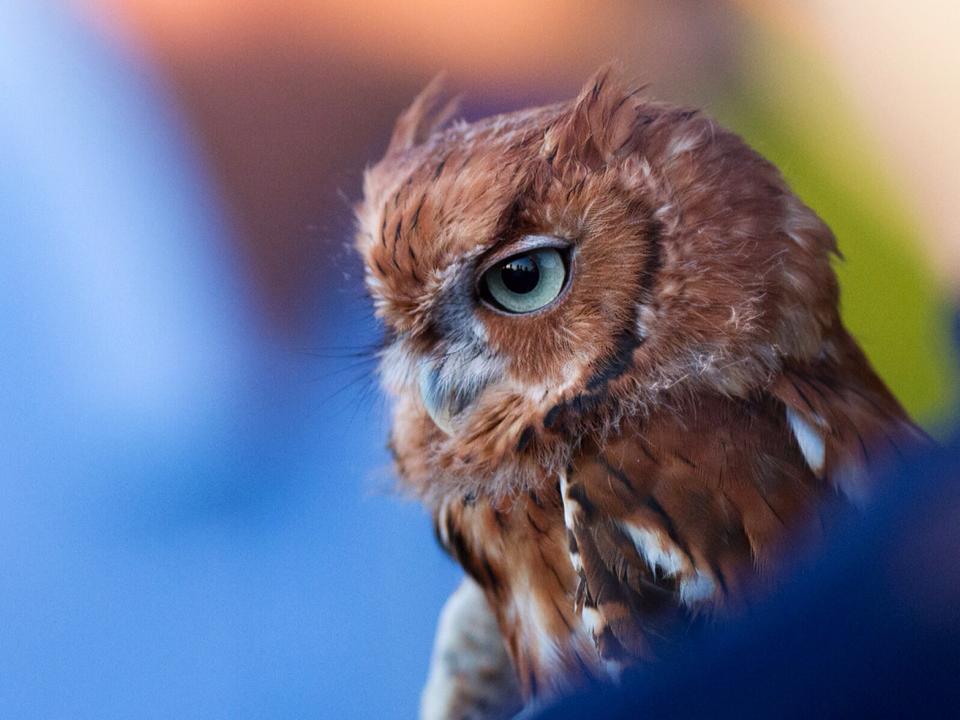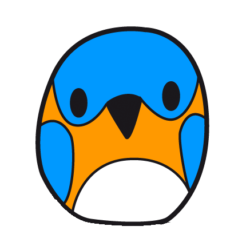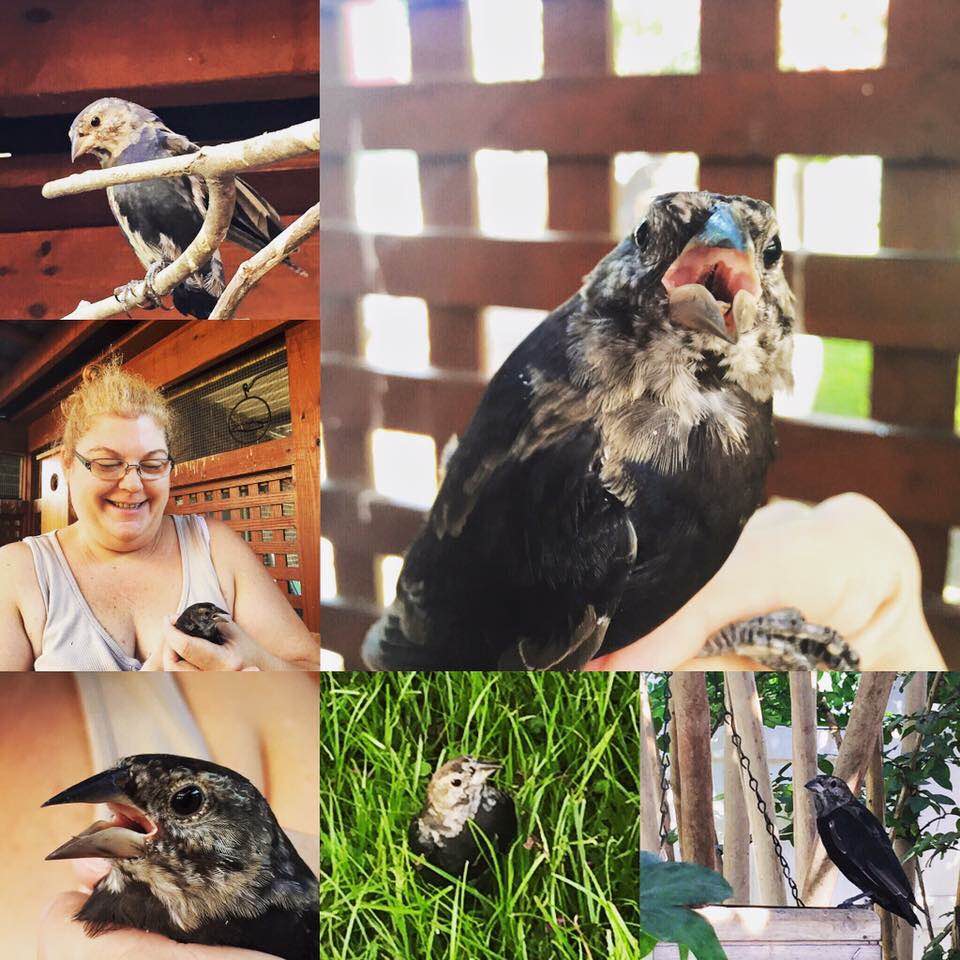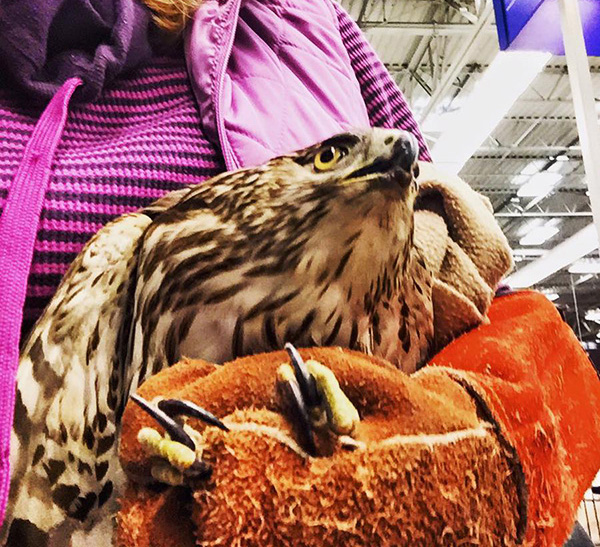
On Feb 23, Tim from Lowe’s Home Improvement on Gunbarrel Road, Chattanooga called the TWRA about a Cooper’s Hawk inside the store. The TWRA referred him to Alix Parks, and she advised him with ways to try to entice the hawk back outside. He called again the next day because their efforts had been unsuccessful.
So that night after work, Sherry Teas volunteered to try to catch the hawk. Alix gave her a hawk trap with two live mice inside and she headed to Lowe’s. The employees guided her to the section of the store where the large, female Cooper’s Hawk was hanging out. Her crop was visibly bulging from the songbirds she had been eating inside the store that day. Sherry was concerned she wouldn’t have an appetite, for the mice but when she sat the trap in the isle below her, the hawk swooped down on the trap within seconds.
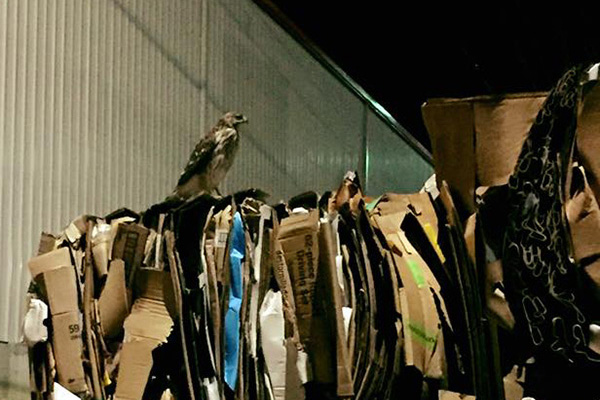
Sherry ran over to grab her gloves and just as she put one glove on, the hawk jumped off the trap and flew straight at her face. With quick reflexes, she caught the aggressive Cooper’s in mid-air with the one-gloved hand! The hawk was still flapping and fighting to get away while Sherry was trying to get the other glove on, but she didn’t have a firm grip so she slipped out of hand.
Four more times the Cooper’s landed on the trap, and finally she was snagged. Sherry threw a towel over her and removed the snag off her foot. By this time, about 15-20 shoppers had gathered around to watch with excitement. Sherry held up the hawk for a few photos, then loaded her up and released her outside.
